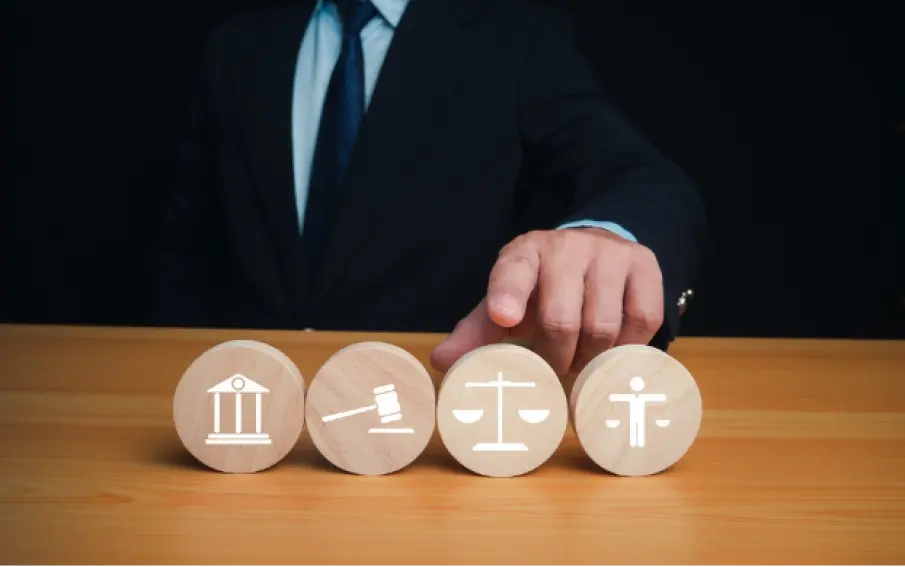Experienced law professors’ role in bridging theory and practice

There has always been a huge divide between theoretical instruction and real-world application in legal education. While textbooks offer all the knowledge one might need to practice law, the skill set demanded to handle the complexities of today’s legal profession extends far beyond book mastery.
Luckily, experienced law professors can help bridge this gap by bringing practical insights into the classroom. They play an indispensable role in merging legal theory with real-world applications, ensuring their students can meet the actual demands of modern legal practice.
Why is purely theoretical legal education not enough
While traditional legal education emphasizes the study of critical aspects such as case law and legal principle, it fails to equip learners with the competencies required to excelin modern legal practice. Students are encouraged to analyze and debate legal concepts instead of receiving exposure to real cases. As a result, they tend to have problems with client interaction and procedural nuances, leaving them inadequately prepared for legal work.
The legal profession is quite demanding and requires more than just analytical thinking. For starters, one needs to be proficient in advocacy, legal writing and negotiation. The recent advancement in technology has made it even more difficult aslawyers are expectedto leverage AI for predictive and contract analysis.
Whatexperienced law professors offer in legal training
Bridging the theory-practice divide in legal education comes down to finding the right educators —experienced law professors. These are individuals who practiced law extensively after finishing their studies before making a career change to academia. They are the right fit for law institutions looking to help their students become more successful in the legal world.
Experienced law professors have firsthand knowledge of court procedures. They can develop an effective case strategy and advocate for their clients. These are critical skills that go beyond legal textbooks, ensuring they can offer students a more tangible and applicable understanding of the law.
Incorporating their practical experience into classes ensures that learners can effectively apply legal concepts to real-world situations. For example, professors who have dealt with corporate litigation in the past can offer students a more comprehensive look into contract disputes and regulatory compliance.
These experienced instructors also ensure students are equipped with up-to-date knowledge about ethical considerations and legal technology.
Luckily,experienced law professors such as Samuel L. Bray help students navigate evolving client expectations, regulatory changes and technological advancements. He also offers mentorships, guiding students in networking, career choices and more. Professors such as this are certainly shaping the modern legal world by offering hands-on learning opportunities.
Which practical learning methods are ideal for law school
Experienced law professors leverage a variety of teaching techniques that emphasize hands-on learning to help students fully understand modern legal practice. For instance, they may employ clinical legal education, which lets students work with practicing attorneys on real cases. During such clinics, the learners draft legal documents and even argue in court.For example, conducting client interviews when dealing with a property dispute between brothers can help students get a firsthand taste of legal practice before graduation.
Moot courts, also known as simulated courtrooms, also help studentsdevelop advocacy skills. Learners get to participate in mock trials and arbitration where they defend their legal arguments and respond to opposing counsel. These classes are instrumental in building confidence and preparing students for the modern legal world filled with dispute resolution and litigation.
Equally, experiencedlaw professors lead legal research and writing courses which can help enhance the competencies of learners. Students are encouraged to draft persuasive briefs and contracts, which are practical skills in the legal world. During these classes, the professors emphasize the importance of clarity and precision in legal documentation.
Finally, these seasoned law instructors advocate for the incorporation of internships and externships. This ensures students gain exposure to variouslegal fields, from probate law to corporate law. By working in law firms, nonprofit organizations and governments, learners build professional relationships that can help launch their careers.
How law schools can integrate theory and practice
Law schools must prioritize bridging the gap between theory and practice to keep up with the ever-evolving legal profession. This starts with committing to hire faculty members with experience in legal practice. They must also go out of their way to foster partnerships with legal institutions to ensure students acquireadequate opportunities for experimental learning.
Furthermore, law schools must embrace technological advancements that are actively shaping the legal profession. For instance, the continued use of AI and legal analytics requiresa shift in how professors should teach law. Instructors who have experience in this field should educate students on how advancements in technology arereshaping law, ensuring they can effectively maneuver the digital legal landscape.
The future of legal education
There has always been a huge divide between practice and theory for law students entering the profession. Luckily, experienced law professors can help bridge this gap by offering practical knowledge and mentorship. These educators provide hands-on learning opportunities to ensure learners are equipped with the skills and confidence needed to thrive in today’s legal landscape.
More to Read:
Previous Posts:






